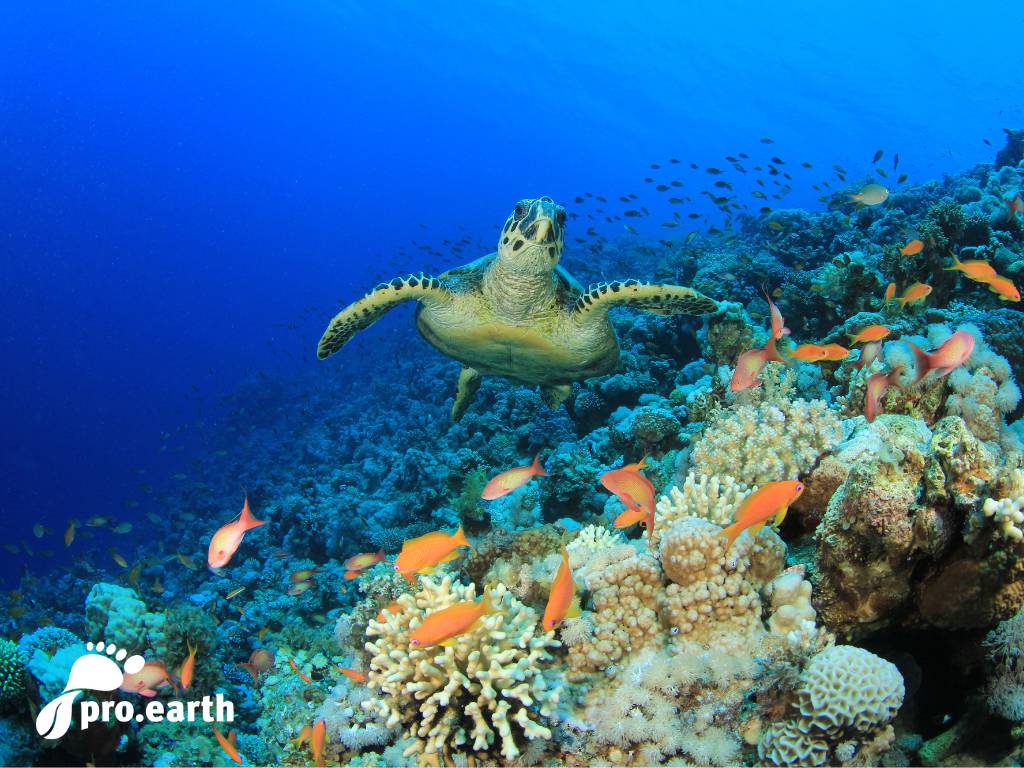World Summit on Nature - Against the dramatic decline of species

Not only is the climate crisis real, global biodiversity is also under serious threat. According to a report by the World Biodiversity Council (IPBES), around ONE MILLION animal and plant species are threatened with extinction worldwide. An incredibly staggering figure. The World Summit on Nature in Montréal, Canada, which has been meeting for two weeks since December 7, faces the incredible challenge of averting this threat. The decline of species and the destruction of our ecosystems and climate change go hand in hand and both have very problematic effects on our human lives.
Making peace with nature
In his opening speech at the World Summit for Nature in Montréal, Antònio Guterres had harsh words for our current behavior: "We are waging war against nature" and treating it like our toilet. The "orgy of destruction" must end, he said. "We must take responsibility for the damage we have done and act to put it right," Guterres continued. "Despite the dreams of billionaires deluding themselves, there is no Planet B. We need to fix the world we have."
High hopes
Many are hoping for a "Paris moment for species conservation" at the World Summit on Nature in Montréal, Canada, including Elizabeth Maruma Mrema, the head of the UN Convention on Biological Diversity. In 2015, the participants at the UN Climate Change Conference in Paris agreed to limit global warming to 1.5 degrees Celsius compared to pre-industrial times - a major breakthrough for the international community.
Difficult negotiations
No agreement has yet been reached on the main issue of protecting 30 percent of the world's land and sea areas by 2030. For comparison: in Germany, only 0.6 percent of the area in the strictest category is protected as national parks.
"This small amount of protected land in Germany is nothing compared to countries in the Global South such as Botswana or Tanzania, which protect 20 to 40 percent of their land in national parks," says Matthias Glaubrecht, biodiversity researcher at the Leibniz Institute for the Analysis of Biodiversity Change in Hamburg.
"If a country like Germany does not manage to place 30 percent of its land under protection, it should be able to buy its way out, so to speak," Professor Glaubrecht continues.
Negotiations on financial support for developing countries to protect biodiversity are proving equally difficult.
"The sums that flow into environmentally harmful incentives every year are to be reduced by 500 billion US dollars worldwide. This includes subsidies for fossil fuels. According to the draft of the so-called post-2020 goals, 200 billion US dollars are to be allocated to nature conservation each year instead," writes the science media center.
According to the FAZ, the dispute between North and South over so-called "biopiracy", i.e. the private use of genetic data from DNA, but also details on proteins or RNA, which has been smouldering for years, could become a major obstacle to the World Summit on Nature. This genetic data not only contains valuable information for research, but is also extremely valuable for the pharmaceutical and chemical industries in particular.
Interim results after one week
Many observers warned that the summit would fail, but this seems to have been averted. Chief negotiator Basile van Havre now expressed his confidence in the prospects of success of what is probably the most important species protection treaty of the decade. Following important progress in recent days, there are no longer any countries that want to block an agreement, he said, expressing his relief.
The adoption of a new global species conservation agreement requires unanimity, i.e. the agreement of representatives of almost all of humanity.
"There is so much support for the 30×30 target that I doubt it will not be adopted or reduced in scale," says van Havre, who is usually cautious with predictions, about the key element of placing 30 percent of global land under protection by 2030.
"We cannot go home with an unambitious agreement that does not clearly state the objectives and implementation and monitoring mechanisms ," said Inka Gnittke, head of the German delegation.
However, it remains to be seen how ambitious the final version of the agreement will be.






